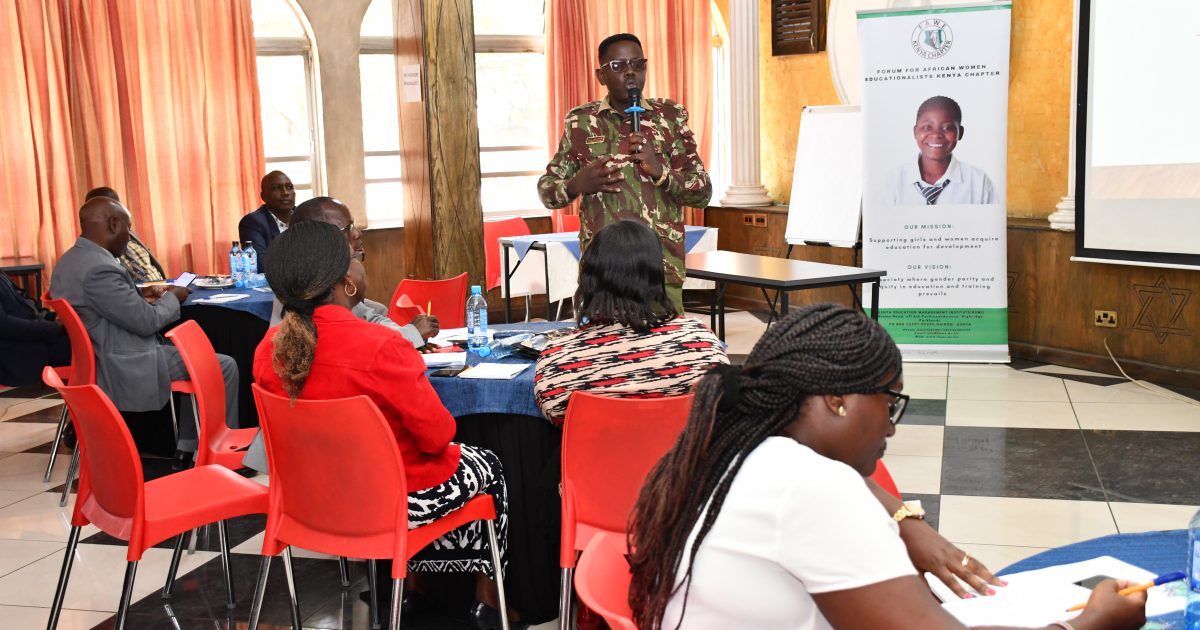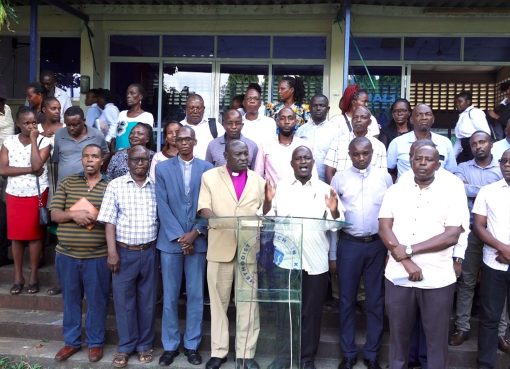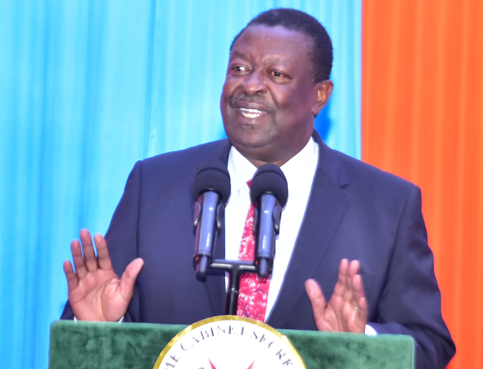The Centre for Rights, Education and Awareness (CREAW) in collaboration with the National Police Service, will offer training to police officers in Nakuru that will enhance the way they handle victims of Sexual and Gender-Based Violence (SGBV).
The Program Officer at CREAW, William Mbanyamlenge, said the training will also focus on how to improve on public relations between the police officers and members of the public, to ease the burden of victims seeking justice.
“We have had instances where the victims are intimidated or frustrated by police officers when they go to report abuse. Male victims of GBV are sometimes mocked or made a butt of jokes at police stations,” indicated Mr Mbanyamlenge.
According to the Program Officer, the training will ensure that police officers are fully trained on what it entails to get statements and how to collect samples from GBV victims and survivors.
“This, he added, will ensure that cases touching on GBV are tight when taken to court, to ensure justice for the victims.
Mbanyamlenge spoke in Nakuru during a consultative meeting on SGBV and violence against women, that was graced by various stakeholders, including representatives from National Gender and Equality Commission (NGEC), National Police Service, Ministry of Education, the County Government and the State Department for Gender among others.
He said victims of domestic violence are abused at home, a place that should ideally be the most secure environment and that they end up physically and psychologically abused and separated or divorced, among other ills.
“Women and children who want to speak about their experiences, find it difficult because of shame or fear. When they report, some police officers take the offences lightly, compounding the problem,” he said, adding that the training, which will later be rolled out for local leaders, including chiefs and their assistants, was intended to sensitize the officers.
In some police stations, he added, Gender Desks are not manned by officers trained to handle SGBV cases.
“Transfer of officers is a hindrance because we at times train officers, who are then transferred, replacing them takes a long,” he said.
He expressed concern that investigative agencies face challenges as they prosecute such cases, because GBV victims may not be willing to open up about what happened, there is poor collection of evidence, and perpetrators work hard to stop the court process.
“Most of them are from poor backgrounds and cannot afford the legal process, and as much as we want to help, there are expenses we cannot avoid. There are cases where relatives try to sort out the issues out of court, but this should not be an option, because victims are affected their entire lives. The law on defilement should be treated with the seriousness it deserves,” Mr Mbanyamlenge added.
According to UN-Women, gender desks are specialized focal points that deal with gender issues (or specifically on violence against women) in the police stations in a country.
The mandate of the gender desks includes investigating cases of GBV and to charge the perpetrators accordingly, improve the response to violence survivors, which may include referrals to medical facilities and other institutions for professional services.
Mbanyamlenge said besides using the Criminal Justice System, the police can also use public education to discourage the vices.
“We will sensitize police officers on the standard operating principles of handling SGBV cases. The most important is ensuring confidentiality, when talking to the survivors. Handling of the survivor and the evidence is very important.”
Once the matter is reported, the Program Officer states that a police officer must ensure the samples are taken and the relevant documents are filled correctly.
“Some of the cases thrown out by the court are due to lack of evidence, due to how the matter was handled from reporting to statement recording. Sometimes, some details such as age may not tally hence, the charge sheet is declared defective,” Mr Mbanyamlenge indicated.
Apart from serving as a focal point for reporting sexual harassment, the desks are responsible for promoting procedures and protocols on investigations, interviewing, enforcing protection orders as well as increasing public awareness of GBV.
Mr Mbanyamlenge also noted that the appropriate channels to address cases of sodomy, defilement and child abuse were Gender Desks at police stations.
“The Gender Desk addresses gender issues, which need privacy that cannot be handled like any other cases reported in the police stations. That is why we will train the officers, specifically on handling child abuse and other gender issues,” he said.
He indicated that due to social and cultural norms associated with masculinity, GBV against men is stigmatized.
The Program Officer said men have been sexually abused in various environments, including homes and streets, but many times the issues go unreported.
“This should be recognized as a form of GBV, similar to sexual violence against women and girls. But the expectation of men being stronger than women, makes it difficult to recognize intimate partner violence against them,” Mr Mbanyamlenge stated.
The Program Officer indicated that male GBV survivors require a multi-sectoral and survivor-centered response with access to medical, psychosocial and counseling services, which respond to trauma, including mental and sexual and reproductive health services.
Kenyan society, he recommended, ought to nurture a community of men, who understand that it is okay for them to be vulnerable, to ask for help, to be weak and report violence against them.
“We need to build a culture of reporting GBV against men and ensuring that victims get their rights and are accorded the necessary support,” noted Mbanyamlenge.
He observed GBV had a huge long-lasting impact, noting that men often feel powerless if they can’t provide for their families as they feel that they have lost the respect of their communities and partners and even themselves.
This he said often leads to domestic violence, depression, abandonment of families and other tragic consequences.
He attributed underreporting of GBV against men as reframing sexual abuse as torture, criminalization due to same-sex acts being illegal, homophobic backlash, social prejudice, and non-recognition of females as perpetrators of intimate-partner violence (IPV), shame and stigma.
The Programs Officer observed that Kenya has no shelters for abused men and very few for women to accommodate men or, if they do, only a very small percentage is catered for.
“We need to empower men to regain their dignity, but not through violence. To combat and address GBV against men in all their diversities, we must acknowledge it. This doesn’t mean that we oppose that of girls and women or even detract from its seriousness and magnitude. GBV is a crisis and its causes and consequences must be continuously addressed,” he affirmed.
By Anne Mwale





